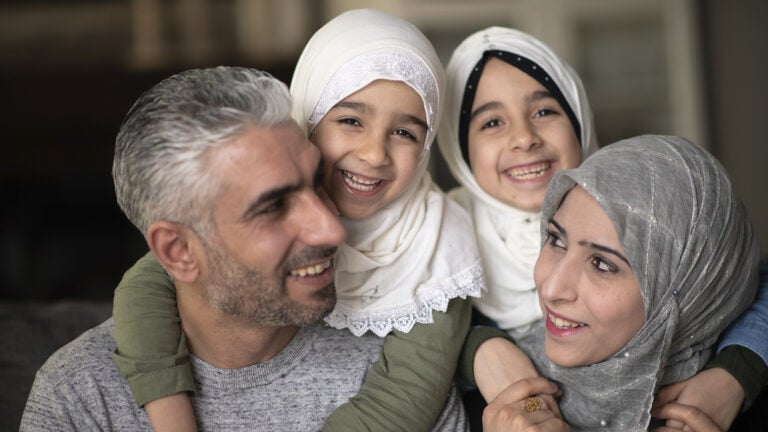
Three years into his presidency, what’s the impact of Trump’s anti-Muslim actions?
He falsely claimed that Muslims in New Jersey celebrated the terrorist attack that downed New York’s twin towers. He called for a “total and complete shutdown of Muslims entering the United States” and said he’d implement a database to track Muslims. President Donald Trump also stated, unequivocally, that “Islam hates us.”
Three years into his presidency, how has Trump’s very public statements and the actions of his administration influenced the country and impacted the lives of Muslims? Evelyn Alsultany, a scholar on anti-Muslim racism and associate professor of American Studies and Ethnicity at the USC Dornsife College of Letters, Arts and Sciences, was recently interviewed by the Organization for Defending Victims of Violence for her opinions regarding Trump’s impact on Muslims and how they’re perceived today.
The following are brief excerpts from the interview, which can be read in its entirety on the ODVV website.
What’s your response to the notion that American Muslims are hostile to the U.S.?
The stereotype is that American Muslims are not able to be loyal to the United States because Islam pits them against the U.S. Therefore, they must continually prove their loyalty. I have written about representations of this stereotype in my first book and also in a recently published essay.
In the immediate aftermath of 9/11, the default assumption was that all Muslims were “bad” and potential terrorists unless they proved their allegiance to the United States and its War on Terror. This left no room for Muslims in the U.S. to express criticism of U.S. government policies.
The “patriotic Muslim” became the quintessential archetype of the “good Muslim.” Patriotic Muslims are eager to differentiate themselves from terrorists by … publicly affirming their commitment to the United States and its dominant values, and even enlisting in the military and potentially … dying for one’s country. …
Yet another kind of “good Muslim” is the native informant who has left Islam entirely. The native informant is a critic of Islam who uses their own negative experience as a former Muslim to stand in for the entire religion. … Finally, the nominal Muslim is someone who is … culturally Muslim but not religious.
I have tried to point out these limited options and pathways that emerge for Muslim inclusion in U.S. multicultural democracy to highlight that Muslims in the U.S. are a diverse group of people with a range of experiences, beliefs and political views that cannot be reduced to a few stock categories.
What are some of the best ways to counter Islamophobia?
Since I am an educator, I believe in the power of education. There is a critical mass of faculty at different universities doing important work in ethnic studies, American studies, sociology, literature, religious studies and other fields. Similarly, there are teachers across the U.S. attending training sessions on how to teach about Islam and Islamophobia in their classrooms.
I collaborated with colleagues at other universities in the U.S. to create an online syllabus that we titled “Islamophobia is Racism.” … Our approach is that challenging Islamophobia requires learning about Islamophobia as a political construct, not only learning about Islam. It requires an understanding of the changing ways that a group of people are demonized.
What’s the general perception of Muslims today?
U.S. citizens are divided. … Islam is not seen as an American religion protected by the First Amendment right to freedom of religion, but rather as a religion of terrorism, anti-Americanism, anti-Semitism, misogyny, and homophobia. Some even believe that it is not a religion but an extremist ideology. …
However, to be clear, not all U.S. citizens perceive Islam unfavorably. Other segments of the population have a more favorable view of Islam or at least support religious freedom.
Read the entire interview with Evelyn Alsultany at ODVV.org >>